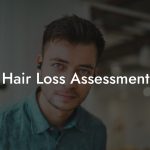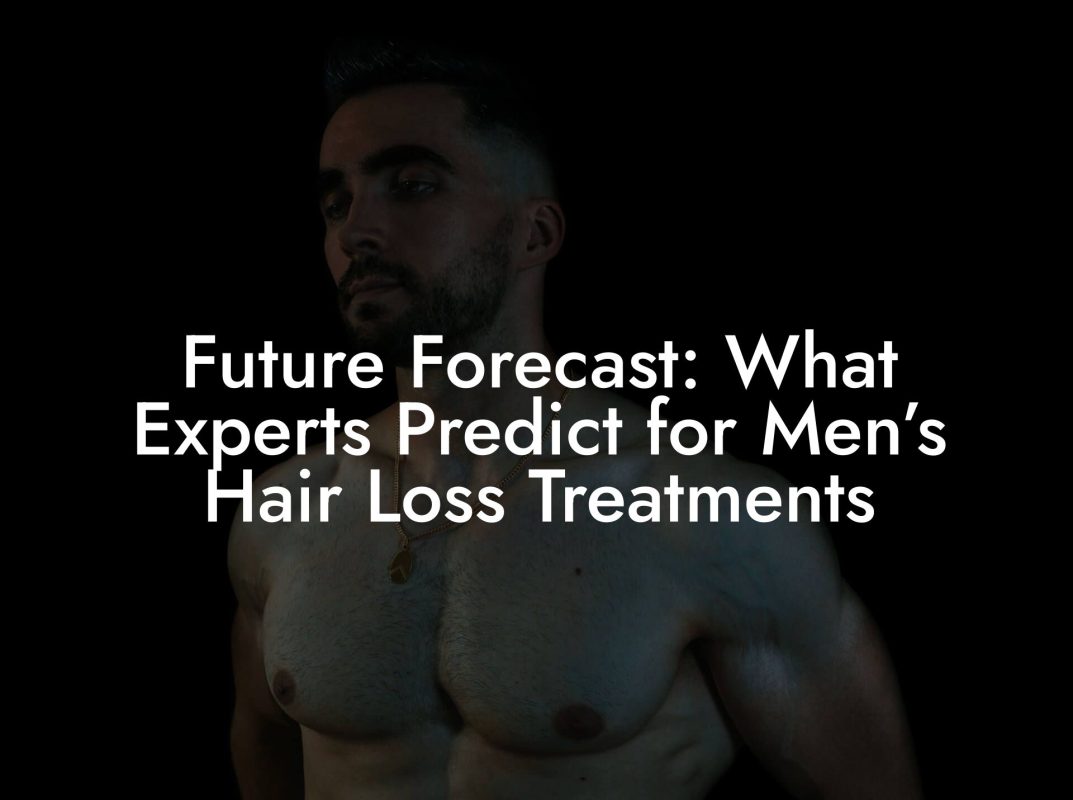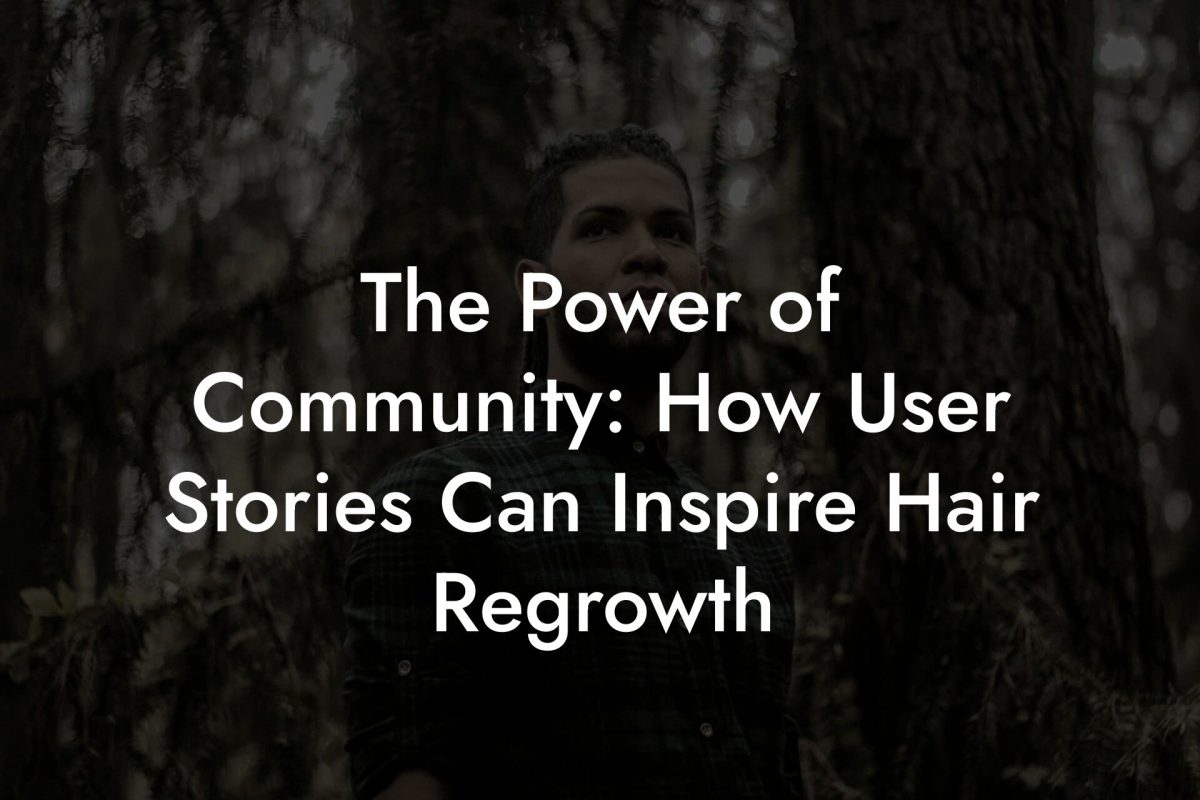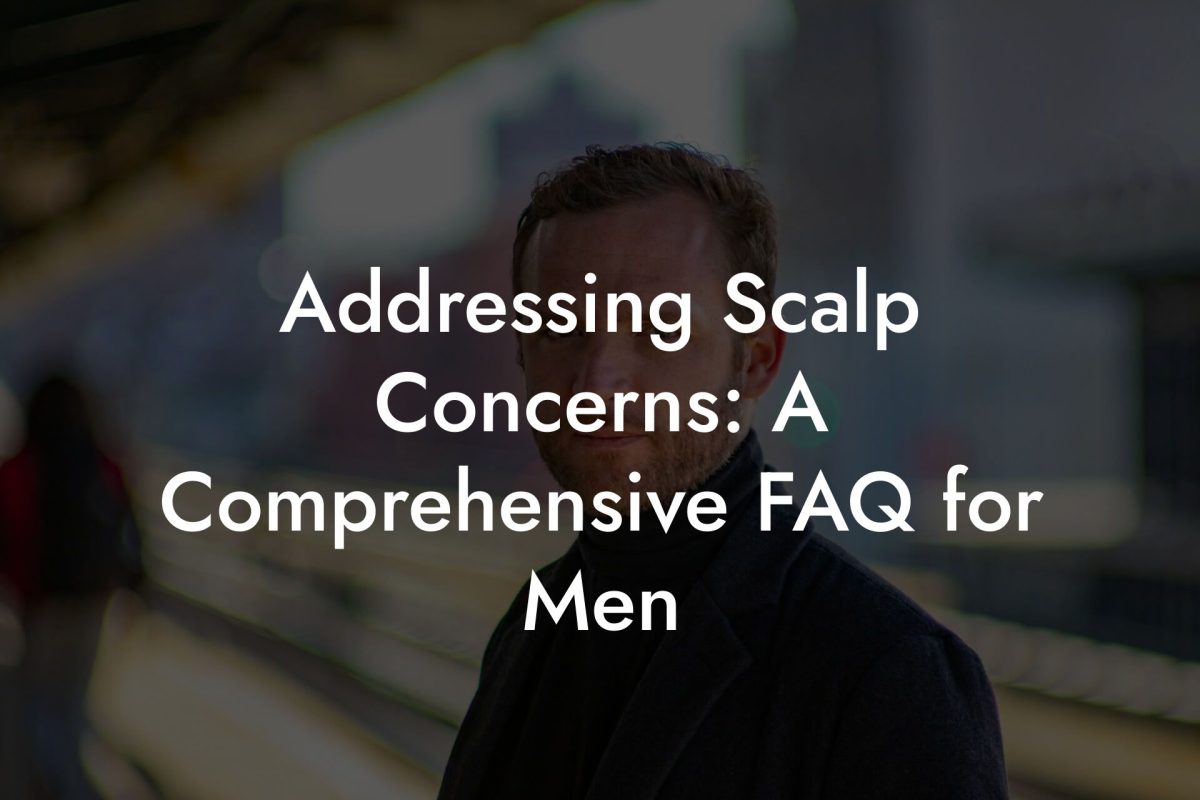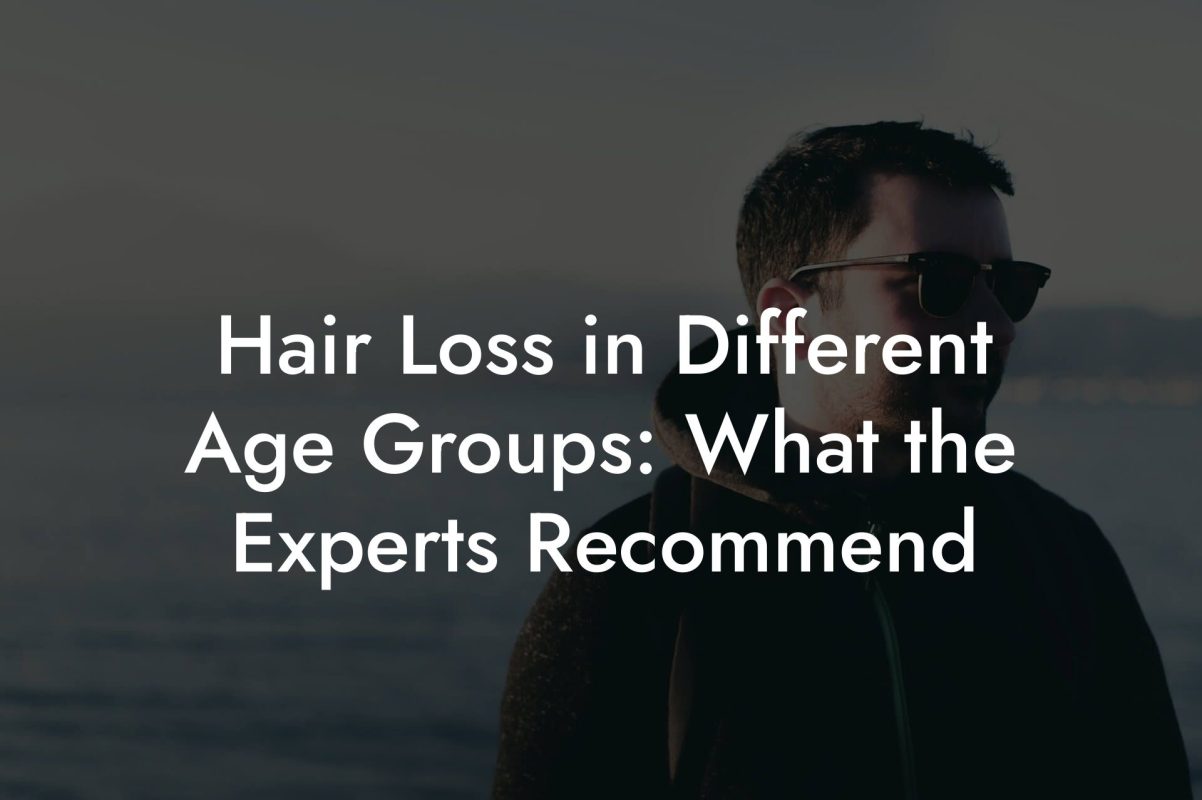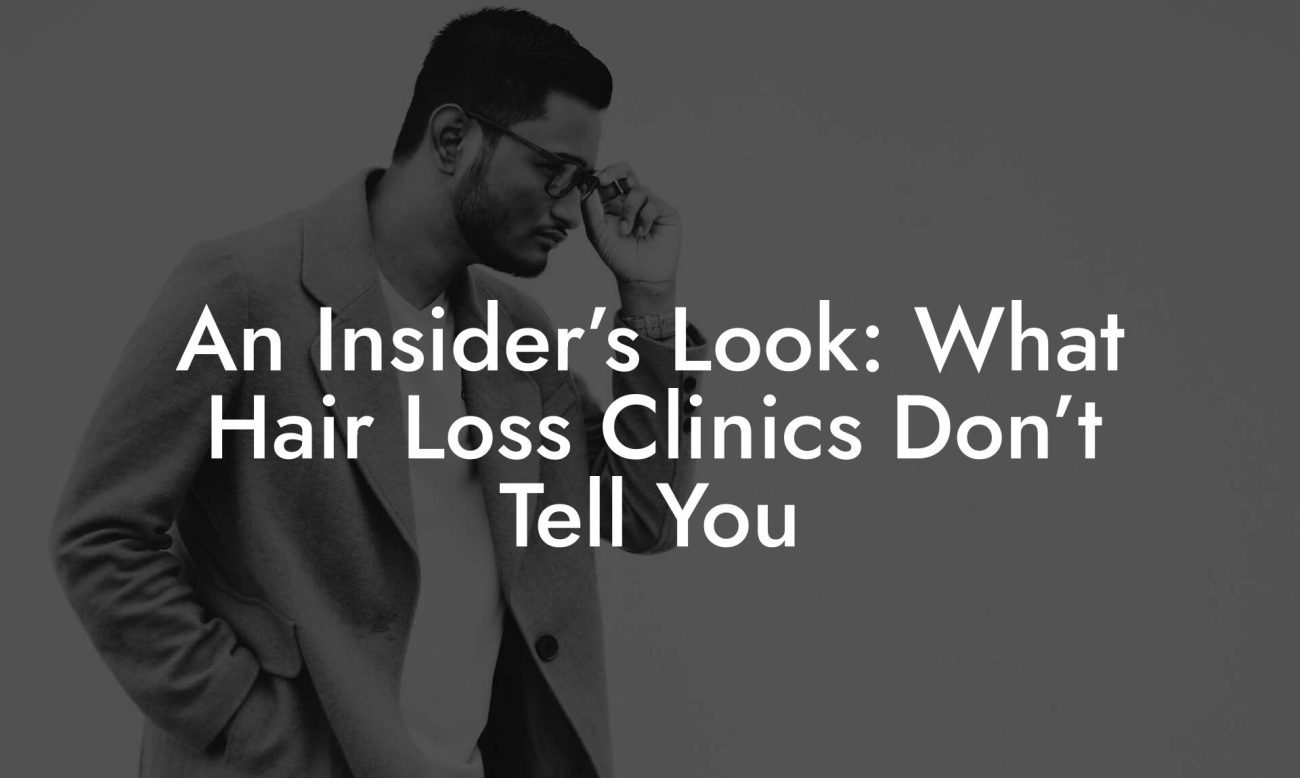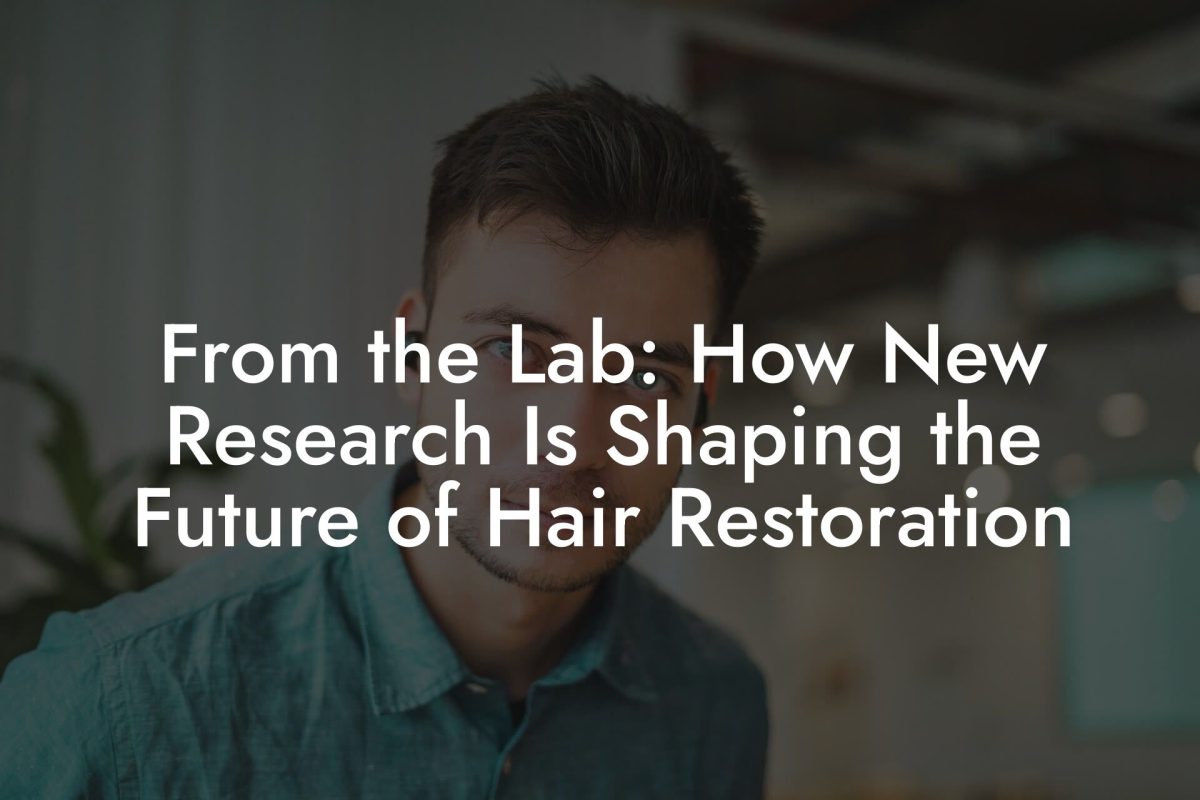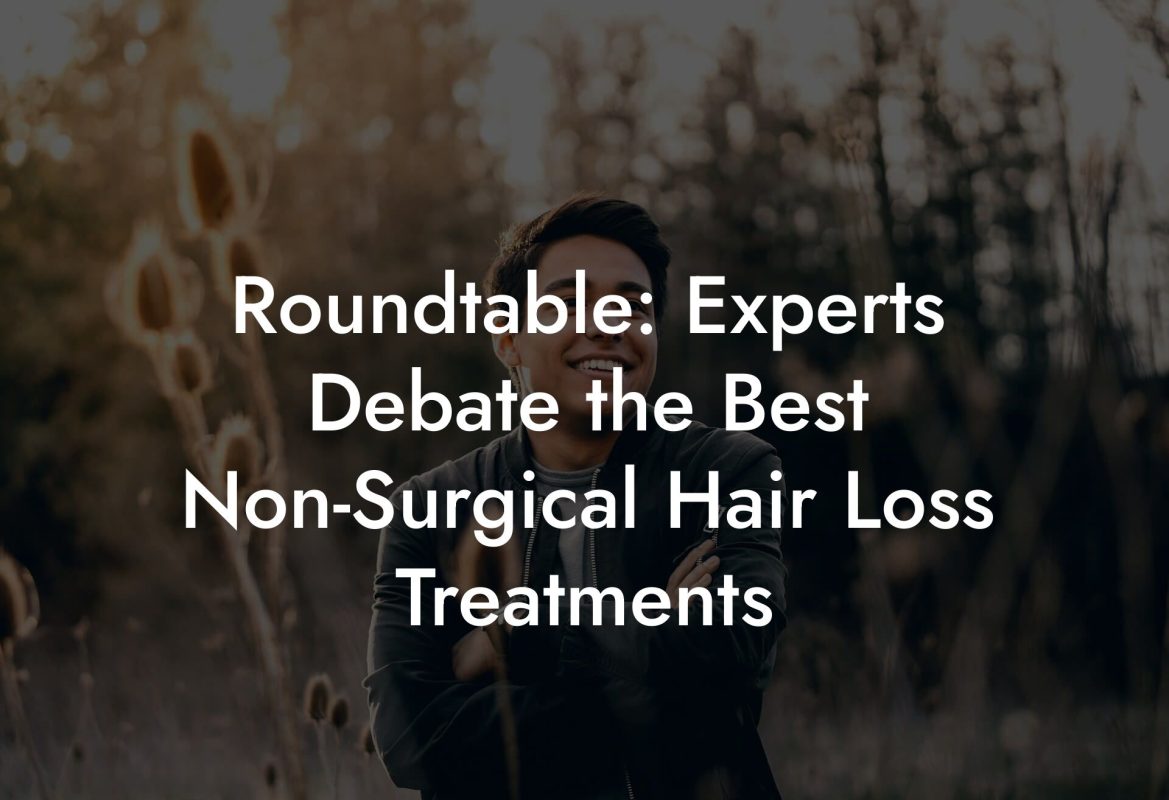Hair Loss Library
Debunking Hair Loss Myths: Insights from Top Trichologists
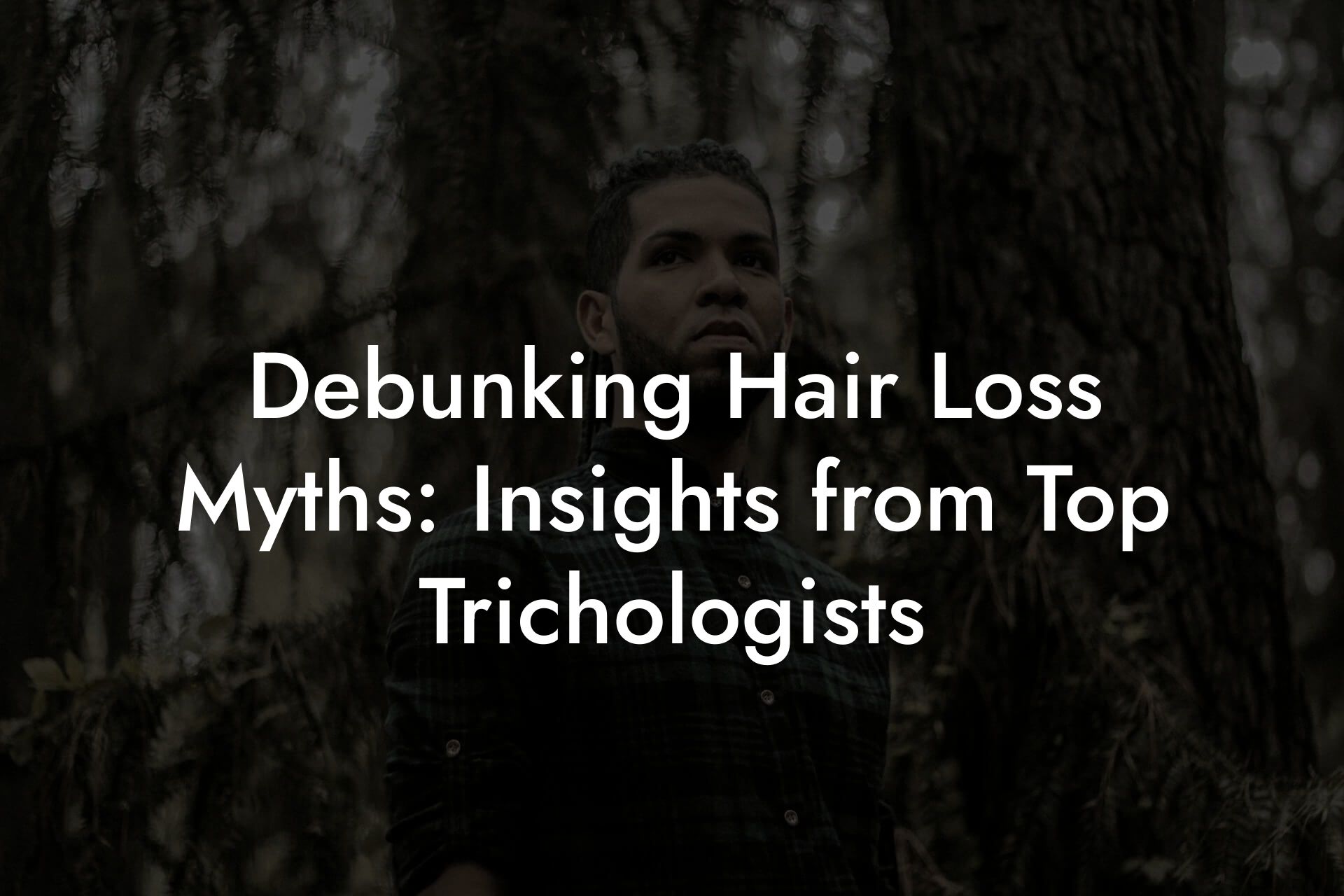
Ever caught yourself scrolling through memes about crazy hair growth potions or reading dubious online articles proclaiming that balding is a "curse" from your parents? Welcome to the real talk on men’s hair loss—a no-nonsense, humorous, and unapologetic guide where we debunk every myth under the sun with insights from top trichologists. Whether you’re a Gen Z dude battling premature hair fall or a millennial reminiscing about your thicker locks, Mane Matrix is here to provide the analysis you need without the awkward doctor visits or exorbitant prices.
Understanding the Landscape: What Really Causes Hair Loss?
Let’s cut through the fluff: hair loss isn’t some mystical phenomenon triggered by hexes or bad juju. In reality, it’s usually a complex dance between genetics, hormones, lifestyle factors, and yes, even stress. While popular culture loves to put forward entertaining theories—from wearing hats too much (hello, helmet hair) to not getting enough sleep—science tells a different story.
Top trichologists agree that genetics and hormonal imbalances (think dihydrotestosterone, or DHT, for the uninitiated) play major roles. But don’t worry, the answer isn’t to go full “mad scientist” on your follicles. Instead, understanding these causes is the first step in busting the myths that have kept you guessing about your mane’s fate.
Beyond the biological factors, nutritional deficiencies, harsh styling practices, and even environmental pollutants can contribute to why your hair might be saying “later, gator.” Recognizing the multifaceted nature of hair loss empowers you to take a multi-pronged approach—combining expert insight, smart routines, and a dash of humor—to keep your hair game strong.
Top Hair Loss Myths: Time to Set the Record Straight
Let’s break down some of the most popular hair loss myths that have been circulating faster than a viral TikTok trend:
Myth 1: Wearing Hats Causes Balding
This one might be especially relevant if you’re a guy who loves rockin’ a baseball cap or a beanie on a chilly day. Contrary to popular belief, wearing a hat does not make your hair fall out. The idea likely emerged from assumptions about restricted blood circulation, but science shows that the scalp’s blood flow remains unaffected by a snug cap. So, go ahead and rock that hat—just remember to wash it regularly!
Myth 2: Shampooing Too Often Ruins Your Hair
There’s a widespread notion that over-washing your hair strips it of natural oils and leads to baldness. While it’s true that excessive washing can dry out your hair, the root (quite literally) of the problem lies in the quality and type of products you use. A gentle, sulfate-free shampoo won’t harm your locks, and sometimes, a good wash can do wonders by removing dirt and sebum. Just partner it with a nourishing conditioner, and you’re golden.
Myth 3: Miracle Cures Exist
Have you ever been lured into trying a “miracle cure” that promises to regrow every single hair in just a few weeks? Spoiler: if it sounds too good to be true, it probably is. Hair regrowth is a slow, steady process and no magic potion—whether it’s a liquid miracle or an expensive laser cap—can defy the laws of biology (and your wallet). Instead, sustainable treatments backed by research, like minoxidil or finasteride, are your best bets, and even then, patience is key.
Myth 4: Balding Is Only a Male Problem
While men are more visibly affected by pattern baldness, women can and do experience hair loss too. However, the patterns and causes differ, often linked to hormonal fluctuations and life events like pregnancy or menopause. Understanding that hair loss doesn’t discriminate is crucial—not only does it help destigmatize the issue, but it also opens up avenues for sharing practical advice across genders.
Myth 5: Stress Alone Can Make You Bald Overnight
Yes, stress is a hair loss trigger, but the idea that a single stressful day will result in a dramatic bald spot is overblown. Stress may accelerate conditions like telogen effluvium (a temporary shedding phase), but it’s usually a combination of genetic predisposition and other contributing factors that leads to significant hair loss. So, while managing stress is part of the solution, it’s far from a magic fix.
Debunking these myths not only clears up confusion but empowers you with the knowledge to make informed decisions about your hair care. No more falling for urban legends—just science, smarts, and a good dose of humor.
Scientific Insights and Expert Advice from Top Trichologists
Let’s get to the meat of the matter: what do the experts have to say about your hair loss woes? Trichologists—the hair scientists of our time—combine the latest research with clinical expertise to offer advice that is both evidence-based and refreshingly practical.
One recurring theme from our top experts is the importance of early detection. Regular monitoring of your hair and scalp condition (without that awkward self-examination time) can help detect changes early. Whether it’s noticing increased shedding or thinning in specific areas, once you catch on, you can adapt your hair care routine accordingly.
Understanding Genetics and Hormones
Genetics play a starring role in hair loss. If your dad, granddad, or even your great-uncle sported a receding hairline, there’s a fair chance your follicles might follow suit. However, this isn’t destiny—rather, it sets the stage for possible hair loss. Hormones, particularly DHT, are responsible for miniaturizing hair follicles in susceptible individuals. Top trichologists stress that while you can’t change your genetic makeup, you can manage hormonal imbalances through lifestyle changes and targeted treatments.
Innovative Diagnoses and Technological Advances
Gone are the days of guessing if that patchy hair loss is temporary or a sign of something more serious. With innovative diagnostics such as digital trichoscopy and scalp analysis, experts can now get a magnified view of what's really happening at the follicular level. These techniques help differentiate between various conditions—like androgenetic alopecia, alopecia areata, and telogen effluvium—ensuring that the treatment plan is as personalized as your Spotify playlist.
The Role of Nutrition and Lifestyle
Nutrition isn’t just about gym gains or shedding a few pounds—it’s also about providing your hair with the nutrients it needs to flourish. A diet rich in proteins, vitamins (especially biotin and vitamin D), and minerals nurtures hair growth from the inside out. Moreover, regular exercise can improve blood circulation to the scalp, delivering oxygen and essential nutrients to the follicles. It turns out that your morning run might just be the secret weapon in your hair care arsenal.
This blend of scientific insight and practical advice from trichologists demystifies what was once shrouded in mystery. By understanding the why and how of hair loss, you can take proactive steps and adopt treatments that have real results.
Lifestyle, Nutrition, and Trending Hair Care Routines
If you thought maintaining a killer social media feed was challenging, try taking care of your hair in today’s fast-paced world. But here’s some good news: you don’t need to live in a fancy salon or invest in outrageously overpriced products to see a difference. Smart lifestyle choices and a few trending hair care routines can go a long way.
Feed Your Follicles Right
What you put on your plate has a huge impact on your hair. Think of your hair as a plant—it needs proper nutrients and care to grow robustly. Incorporate foods rich in protein (like lean meats and legumes), omega-3 fatty acids (from fish or chia seeds), iron, and antioxidants. These dietary components help combat inflammation and support cell regeneration. And yes, that green smoothie isn’t just a trend; it might just be your scalp’s new best friend.
The Power of a Clean Scalp
A healthy scalp is the foundation for healthy hair. Regular cleansing helps remove excess sebum, dead skin cells, and pollutants that could clog hair follicles. However, avoid over-washing, which can strip your scalp of its natural oils. Instead, find that perfect balance with a gentle, pH-balanced shampoo and a nourishing conditioner that locks in moisture and bolsters your hair’s strength.
Embrace Smart Styling
Sure, straightening, curling, and even the occasional color splash can be fun, but overdoing it can cause damage over time. Constant heat, harsh chemicals, and tight hairstyles can weaken hair strands and contribute to breakage. Top trichologists recommend switching up your style routine occasionally—opt for air-drying when possible, use heat protection sprays, and try loosening up your ponytails to avoid unnecessary tension on your hair roots.
Stress Less, Live More
Remember that old myth about stress making you bald overnight? While it’s not as dramatic as a Hollywood special effect, chronic stress can indeed accelerate hair loss by disrupting the natural hair cycle. Incorporate stress management techniques such as mindfulness meditation, regular exercise, or even a hobby that soothes your mind. After all, nothing ruins your hair’s vibe quite like a stressed-out scalp.
With these lifestyle tweaks and trendy hair care routines, you’re well on your way to fostering a robust mane. It’s not just about looking good—it’s about nurturing your follicles with the same care and attention as you do your social media aesthetic.
Technological Innovations in Hair Analysis and Treatment
In our digital age, no aspect of life is left behind—including hair loss analysis. Cutting-edge technology is helping demystify the complexities of hair loss, offering personalized insights that were unimaginable just a few years ago.
At Mane Matrix, we harness advanced digital trichoscopy and AI-powered diagnostics that provide a detailed snapshot of your scalp's health. Gone are the days when you had to rely solely on your mirror and a lot of guesswork. Now, you can receive comprehensive feedback on your hair density, follicle integrity, and even scalp health—all from the comfort and privacy of your home.
Digital Trichoscopy: The Microscope for Your Mane
Imagine a high-tech microscope that gives you a backstage pass to your hair follicles. Digital trichoscopy allows trichologists to capture high-resolution images of your scalp, revealing everything from miniaturization of hair to subtle scalp issues. This technology helps pinpoint the cause of hair thinning and guides targeted, effective treatment strategies.
AI-Powered Diagnostics
Artificial intelligence isn’t just for recommending your next binge-watch—it's also revolutionizing hair care. By analyzing vast amounts of data, AI algorithms can predict future hair loss trajectories and suggest personalized interventions. This means you get customized advice tailored to your unique genetic makeup, lifestyle, and scalp condition, making your journey to healthier hair as efficient as possible.
Non-Invasive Treatments and Smart Devices
The future of hair loss treatment is non-invasive and tech-savvy. From laser therapy devices you can use at home to smart combs that track hair density over time, technology is making it easier than ever to take control of your hair’s destiny. These tools provide real-time feedback and help you monitor the effectiveness of your treatments, ensuring you're always one step ahead in your hair care routine.
As technology continues to evolve, so will the ways in which we understand and treat hair loss. Embracing these innovations not only demystifies the process but also empowers you with actionable insights to maintain and grow your mane with confidence.
Integrative Hair Loss Treatments: Combining Science with Self-Care
It turns out that the best approach to tackling hair loss isn’t an either/or scenario—it’s about combining the best of both worlds. By integrating medically proven treatments with smart lifestyle changes and self-care habits, you create a holistic routine that combats hair loss from all angles.
Top trichologists advocate for a balanced regimen that might include clinically approved treatments like minoxidil or finasteride, supplemented by a nutrient-rich diet, stress-reducing activities, and advanced skincare for your scalp. Think of it as a multi-dimensional strategy—much like building a killer playlist that blends old school classics with the latest hits.
Medically Approved Treatments vs. DIY Remedies
While the internet is awash with DIY remedies, from onion juice treatments to bizarre concoctions involving essential oils, the professionals agree that evidence-based treatments remain the gold standard. Medically approved treatments have undergone rigorous testing and have predictable outcomes. When combined with a robust self-care routine and realistic expectations, these treatments can slow down or even reverse early hair loss with time.
Embracing Self-Care Practices
Self-care isn’t just a buzzword—it plays a tangible role in hair health. Regular scalp massages, for example, can boost circulation and relieve tension in the muscles of your scalp. Practicing good sleep hygiene and stress management techniques, like meditation or even the occasional gaming break, not only improves overall well-being but also supports healthy hair growth.
The integrative approach to hair loss is not about quick fixes but about making sustainable lifestyle changes that, over time, yield visible results. It’s a journey—a marathon, not a sprint—where knowledge, persistence, and a bit of humor pave the way to a healthier mane.
Resources and Community Support: Your Next Steps
Feeling a bit overwhelmed by all the technical details? Don't sweat it—you're not alone. There’s a robust community of men who, just like you, are taking charge of their hair health and sharing practical advice, testimonials, and even some hilarious “bad hair day” anecdotes along the way.
Here are some tips and resources to help you forge ahead:
- Online Forums and Social Media Groups: Connect with fellow hair warriors on platforms like Reddit, Facebook groups, or specialized forums where topics range from daily care routines to detailed discussions on the latest trichology research.
- Expert Blog Posts and Podcasts: Follow insights from renowned trichologists and wellness experts who regularly share tips and success stories. Whether it’s through blog posts, YouTube channels, or podcasts, expert advice is just a click away.
- Virtual Consultations: Some clinics and platforms, including Mane Matrix, now offer virtual assessments so you can get personalized feedback without stepping into a waiting room.
- Workshops and Webinars: Stay updated on free or low-cost webinars that delve into the science of hair loss, practical care routines, and emerging trends in treatment. These sessions are interactive, making it easier to get your burning questions answered.
- Product Reviews and Community Recommendations: With so many products on the market, community testing and honest reviews from real users can be invaluable in determining what might work for you.
Harnessing the power of community not only demystifies the process of addressing hair loss but also provides a support network where you can celebrate small victories and learn from others’ experiences. Remember, every journey is unique, and sharing your challenges and triumphs can be as empowering as any scientific breakthrough.
Ready to take your next step? Dive into trusted resources, join communities of like-minded individuals, and arm yourself with expert advice. Your journey to a healthier mane starts not with a one-size-fits-all solution, but with a personalized approach shaped by both science and self-care.
Crafting Your Personalized Action Plan for Healthy Hair
Empowerment starts with actionable steps. If you’re ready to reclaim control over your hair’s future, here’s a practical approach to create your very own hair care plan:
Step 1: Get a Thorough Hair Analysis
Begin your journey with a detailed analysis of your hair and scalp condition. Whether through a trusted online assessment tool or a consultation with a trichologist, knowing your starting point is key. Look for signs of thinning, scalp health issues, or hidden stress factors that may be contributing to your hair loss.
Step 2: Set Realistic and Measurable Goals
Ask yourself, “What do I really want to achieve with my hair care?” Whether it’s slowing down the rate of hair loss, boosting follicle health, or simply feeling more confident, setting clear goals will help you stay motivated. Write them down and track your progress over time.
Step 3: Optimize Your Diet and Lifestyle
Incorporate nutrient-rich foods that bolster hair health, manage stress through mindfulness or your favorite exercise, and ensure you maintain good sleep hygiene. Remember, your hair is a reflection of your overall health, so investing in self-care pays dividends.
Step 4: Explore Clinically Approved Treatments
Consult with a trichologist to discuss treatments that suit your specific needs. Whether it’s topical treatments, prescription medications, or non-invasive therapies, professional guidance can help you choose the right pathways amidst a sea of options.
Step 5: Monitor Your Progress and Adjust
Keep a journal of your hair care routine, noting any changes you experience and how your scalp responds to different treatments. Regular check-ins—whether through virtual assessments or self-documented progress—allow you to fine-tune your plan and make necessary adjustments.
Creating a personalized action plan isn’t just about tackling hair loss—it’s about taking control of your personal narrative and cultivating confidence from within. Embrace the process as a journey of self-discovery and empowerment.
Debunking Hair Loss Myths: Expert Q&A for the Inquisitive Mind
You probably have a ton of questions swirling around like split ends in the wind. Here are some of the most frequently asked questions about hair loss—answered by top trichologists and backed by science:
1. What’s the real culprit behind most cases of hair loss?
The primary culprits are genetic predispositions and hormonal imbalances, particularly the influence of DHT on hair follicles. While lifestyle factors and nutrition can exacerbate the condition, your genetic makeup largely sets the stage.
2. Can I reverse hair loss once I start experiencing it?
While you might not be able to fully reverse significant hair loss, early intervention using evidence-based treatments can slow progression and, in some cases, stimulate regrowth. A tailored treatment plan is key.
3. Do natural remedies like essential oils work?
Essential oils, such as rosemary and peppermint, may help improve scalp circulation but should be used as a supplement to proven treatments rather than a standalone solution.
4. How important are nutrition and lifestyle in preventing hair loss?
Extremely important. A nutrient-dense diet, regular exercise, and stress management boost overall health and create a supportive environment for hair regrowth.
5. Are there any non-invasive technological treatments available?
Yes! Innovations like laser therapy devices, digital trichoscopy, and AI-powered diagnostic tools offer non-invasive, targeted approaches to maintain and boost hair health.
6. Is there a one-size-fits-all hair loss treatment?
Absolutely not. Because hair loss depends on a variety of factors—from genetics to lifestyle—individualized treatment plans are essential for effectiveness.
7. What should I do if I notice an unusual pattern of hair loss?
Early detection is crucial. Consult a trichologist to assess your scalp condition and design a personalized treatment plan. Early intervention can make a significant difference.
Your Journey to Confidence and Healthy Hair
Embracing the truth about hair loss means stepping into a future where you make informed decisions backed by expert science and practical wisdom. Every myth debunked, every treatment plan customized, and every lifestyle change integrated is a step toward reclaiming not just your hair, but your confidence.
Think of this journey as fine-tuning a masterpiece—your hair is the canvas and your daily care routine, the brushstrokes creating an ever-evolving work of art. With insights from top trichologists, you’re no longer at the mercy of misleading remedies or outdated folklore. Instead, you’re armed with knowledge, purpose, and a clear action plan.
Take pride in the fact that you’re investing in yourself. Whether you’re adjusting your diet, exploring innovative treatments, or simply swapping out an unreliable remedy for something that truly works, every decision brings you closer to the head-turning hair you deserve.
So here’s to celebrating progress, empowering change, and, most importantly, laughing off the myths that once held you back. Your journey to healthy, confident hair is uniquely yours—embrace it with humor, determination, and the assurance that every bad hair day is just another opportunity to reveal how far you’ve come.
With Mane Matrix by your side, you’re not just debunking myths; you’re rewriting the narrative on men’s hair loss. Gear up, dive in, and let your confidence shine as brilliantly as your revitalized mane.
If you loved this article... Dive deeper into the world of mens hair loss with our most popular sections. If there is anything you think is missing or anything you would love for us to write about, just give us a shout.
Expert Interview: Leading Dermatologists Discuss Men’s Hair Loss Solutions
Case Study: How One Man Reversed His Hair Loss Naturally
Hair Loss FAQs: Your Top Questions Answered by Experts
Behind the Scenes: A Day in the Life of a Hair Transplant Surgeon
Success Stories: Real Men Share Their Hair Regrowth Journeys
Debunking Hair Loss Myths: Insights from Top Trichologists
The Role of Genetics: Experts Weigh in on Inherited Hair Loss
How Lifestyle Changes Made a Difference: Inspiring Hair Regrowth Stories
In-Depth Q&A: What Every Man Should Ask Before a Hair Transplant
Roundtable: Experts Debate the Best Non-Surgical Hair Loss Treatments
From the Lab: How New Research Is Shaping the Future of Hair Restoration
Personal Journeys: Overcoming Hair Loss and Embracing Confidence
The Ultimate Hair Loss Q&A: Everything You Need to Know
An Insider’s Look: What Hair Loss Clinics Don’t Tell You
Expert Tips for Maximizing Hair Restoration Treatment Results
Hair Loss in Different Age Groups: What the Experts Recommend
Addressing Scalp Concerns: A Comprehensive FAQ for Men
Analyzing Competitor Gaps: How Mane Matrix Stands Out in Hair Loss Content
The Power of Community: How User Stories Can Inspire Hair Regrowth
Future Forecast: What Experts Predict for Men’s Hair Loss Treatments
